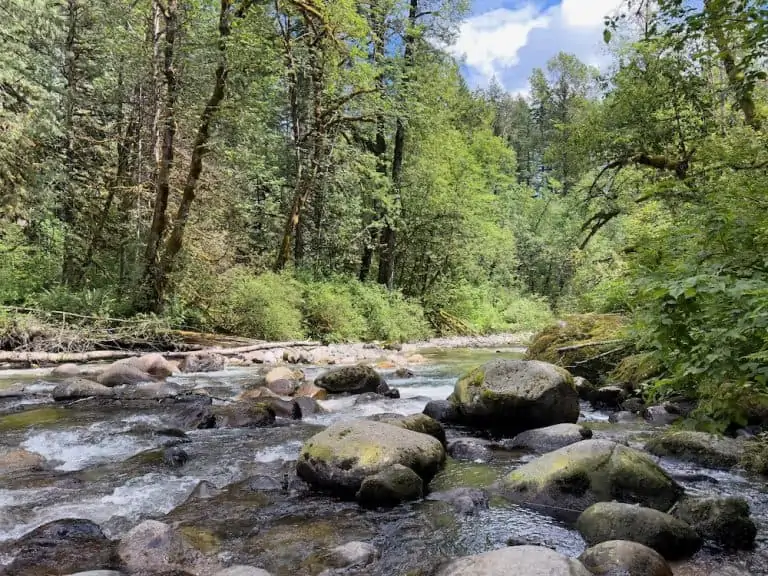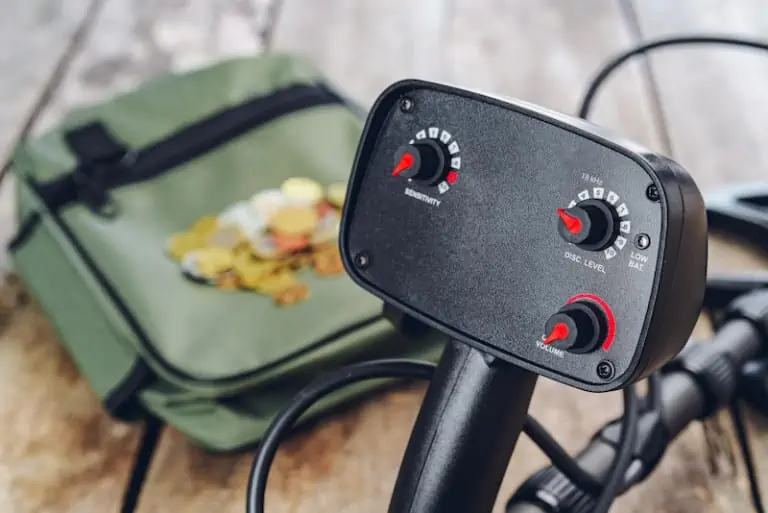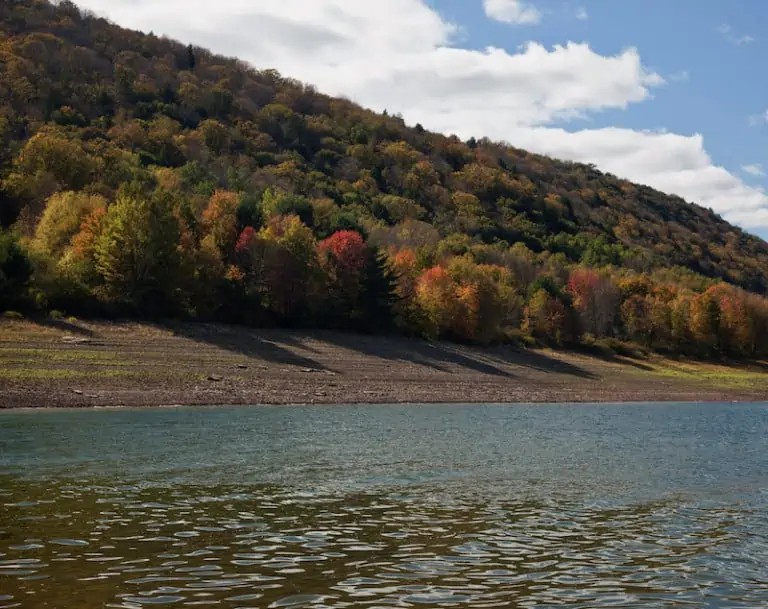How to Go Metal Detecting in New Hampshire
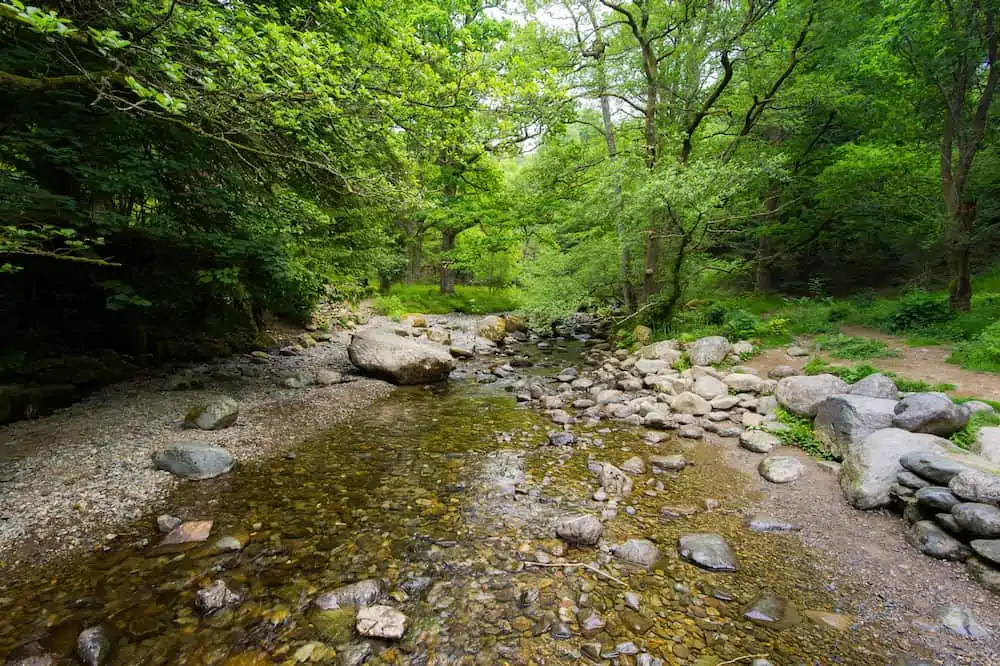
New Hampshire is a small state with a vast history. It was first settled by Native Americans some 11,000 years ago. These Native Tribes include the Penacook, Winnipesaukee, Pigwacket, Sokoki, Cowasuck, and Ossipee.
These Tribes are known collectively as The Abenaki, after the languages they spoke. In 1623, English and Scottish settlers entered the region of what is now New Hampshire. Artifacts from these cultures can still be found throughout the Granite State.
Below, we will discuss the law surrounding metal detecting in New Hampshire, metal detecting clubs, gold prospecting, the best spots to check, and metal detecting in New England.
Metal Detecting Laws in New Hampshire
New Hampshire, like all US states, is governed by the Archaeological Resources Protection Act. This Act makes it illegal to pick up any man-made object over 100 years old. The purpose of this Act is to preserve America’s history by leaving older artifacts in the ground. If you find an item and suspect it is over 100 years old, you should report it to the local authorities. Leave the item in the ground, however, as digging it up is against the law.
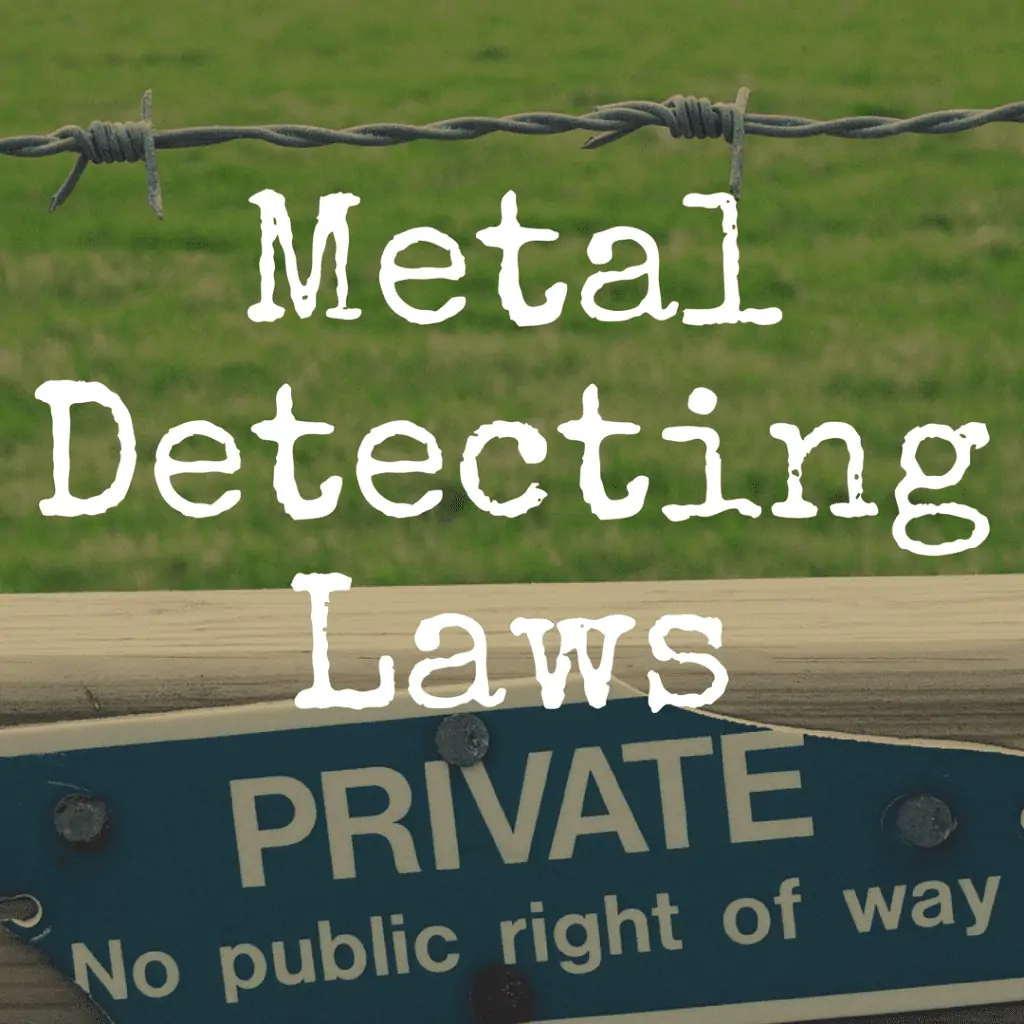
In New Hampshire State Parks, metal detectors are not permitted on Department of Resources and Economic Development land, unless permitted by a special use permit. Always ensure you check with the park ranger in every State Park before you metal detect. Metal detecting is allowed at their discretion, and they can tell you how to obtain a permit, if the Park you visit allows detecting.
Metal detecting is not permitted at any state historic site, or any natural area that is Department of Resources and Economic Development owned lands. Any money or item exceeding $50 in value is subject to Lost and Found Items code. Per this code, these items must be reported and left with authorized personnel.
If the money or item is reported lost or missing, they will be returned to the owner. If it was not reported lost or missing, the personnel will keep the item for 60 days and then return it to the finder if the items are not claimed.
All items of historical or cultural value are property of the state. Items over $250 in value, are subject to provisions of RSA 471-C regarding custody and escheat of unclaimed and abandoned property.
Metal detectors are permitted along beach shorelines, athletic fields, playgrounds, and within 25 feet of picnic tables and pavilions, unless otherwise posted.
Each city or town may have its own rules pertaining to metal detecting in New Hampshire. For example, The town of Durham does not allow metal detecting on any town owned property if the site is considered historic property.
Metal detecting is, however, permitted on town owned property with a few restrictions. A formal request for metal detection must be filled out and approved by the Town Administrator. Items discovered are considered property of the Town of Durham and must be reported to the Town.
If you wish to metal detect on private property, make sure you get the property owner’s written permission. This will keep you safer than oral permission will. Ensure you decide beforehand with the property owner what will happen to the items you find on their property. This should also be included in the written permission. You are not subject to the federal or state level laws pertaining to metal detecting when searching on private property. You can keep all the items you find, regardless of age.
- You Might Also Like: Metal Detecting Laws: Where Can I Detect Treasure?
Metal Detecting Clubs in New Hampshire

Metal detecting clubs offer members many benefits. You can learn so much valuable information from the members of these clubs. Many of these club members have years of experience and are full of terrific tips and tricks for metal detecting success.
You can discover more about different types of metal detectors, accessories, and places to search. They can help you understand the laws and regulations pertaining to metal detecting. Plus, it gives you somewhere to discuss your finds and get help identifying them.
New Hampshire has several metal detecting clubs including:
- Northeast Metal Detecting
- Granite State Treasure Hunter’s Club
- Professional Treasure Hunters Historical Society
- Capital Mineral Club
- Yankee Treasure Hunters Club
- Recreational Detecting and Prospecting Club
- New England Search and Recovery Team
Metal Detecting for Gold in New Hampshire
New Hampshire does have gold! To date, however, only small quantities of gold have been found in bedrock. The state does have a brief hard rock mining history. Gold was found in Lyman in 1864 sparking a minor gold rush. Small mines opened in and around Bath (Town in New Hampshire). These mines pulled out approximately $50,000 worth of gold (period value). Economic circumstances shut down the mines.
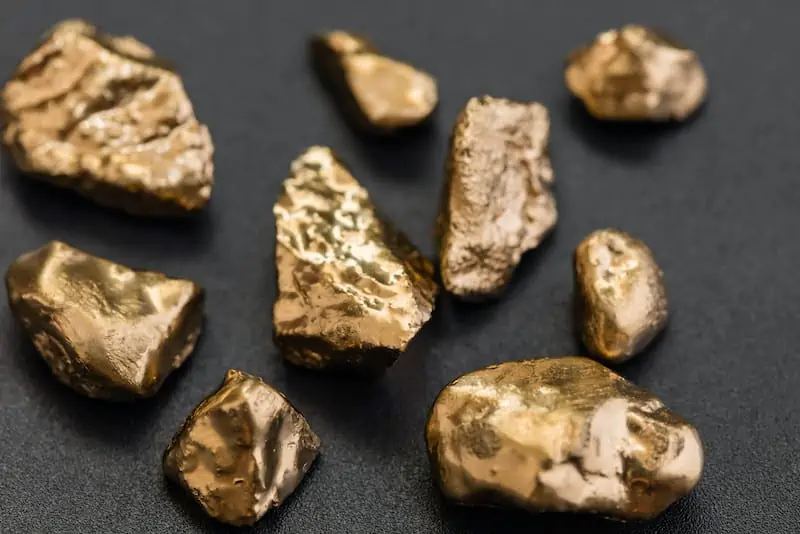
Today, most of the gold found in New Hampshire is in the waterways. The water erodes the bedrock over time, but not the gold. The water washes the gold downstream where it can be found by metal detecting, panning, or dredging. It should be noted that water in New Hampshire streams, brooks, or rivers is considered waters of the state. The riverbed or stream bed is privately owned by the individuals who own the land along the banks.
Gold in New Hampshire has been identified in placer deposits, metamorphosed conglomerate, and quartz veins. The Clough Formation in the western portion of the state is a great place to detect for gold.
Areas near Lyman, Bath, and Monroe, southwestern Littleton northwestern Landaff, and western Lisbon are also known for gold deposits. Smaller amounts are known to exist in the Diamond Ledge in Ossipee, the Ammonoosuc District, and streams draining into the Connecticut River.
Metal Detecting Spots in New Hampshire
New Hampshire is full of fantastic places to metal detect! Some of these include:
- Sawyer River Trail Loop
This trail loop includes picturesque forest and river views. It is 15.5 miles long. It is a state-owned property, but metal detecting is still allowed along the riverbed. Ensure you have a waterproof metal detector!
- Seabrook Beaches
14 miles south of Portsmouth are the Seabrook Beaches. These areas are known to contain Spanish and English coins and artifacts dating back to the 1700s. These coins are known to wash up onto the beach from the various shipwrecks along the New Hampshire shores.

- Thornton Gore Farming Settlement
This was a logging settlement in its day, and an agricultural village before that. The loggers were interested in the logging operation and regrowth of the forests rather than the buildings. So, several buildings are buried in forested regrowth. Be sure to seek permission before metal detecting here.
- Forests
New Hampshire is a heavily forested state. Many logging camps popped up quickly and were never really removed. These areas are scattered all around the forested areas awaiting discovery. Forested areas are one of my favorite metal detecting locations. There are so many secrets from the past waiting in the forests. While metal detecting in an Idaho forest, way up in the hills, I found a railroad tie. There were no currently used railroads within 50 miles of this area. Very interesting to find things like this!
- Lake Beaches
New Hampshire has only 13 miles of coastline, so the bulk of beaches are lake beaches. At the base of the White Mountains is the Lake Region. Beaches are always a great choice for finding dropped items with a metal detector. Check areas where people recreate such as the so-called towel line.
This is an invisible line where most people tend to set up their chairs and towels for a day of recreation. Areas near parking lots, bathrooms, and concession stands are also great choices. Some of the best beaches to check include Bartlett Beach, Weirs Beach, 19 Mile Bay Beach, and Brewster Beach.
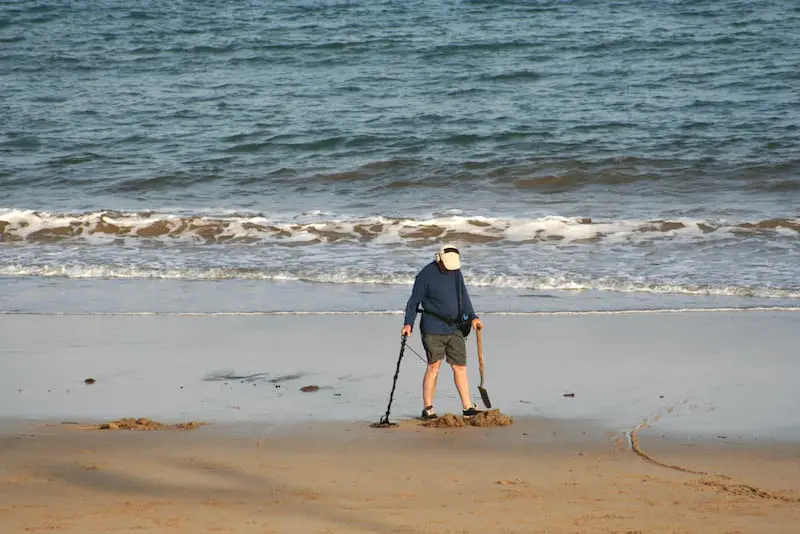
- Ocean Beaches
Despite the small ocean coastline of New Hampshire, you can still metal detect on the beaches here. Most of the time you are searching for newer items like jewelry and coins when scanning the beaches. Try checking high traffic areas, like the lake beaches. Check the towel line, parking areas, entrances, and crowded spots.
Metal Detecting in New England
New England is a great area of the country to metal detect. This area consists of Connecticut, Maine, Massachusetts, New Hampshire, Rhode Island, and Vermont. There is a vast history in this region dating back to the Native American Tribes. Fast forward to the European settlement of the New England states. The area has a fascinating history and a fascinating number of priceless historical and cultural artifacts.
The number of historical artifacts you can uncover with your metal detector are numerous. You can find Native artifacts, European settlers’ artifacts, and newer items dropped by other visitors to the New England states.
Conclusion
New Hampshire is a wonderful place to metal detect. You can find artifacts from thousands of years of history (although you may not always be able to remove them). New Hampshire forests and beaches are 2 of the best places to search. The forested areas are home to countless undocumented logging camps that the forest has since swallowed up.
Beaches are always a smart place to metal detect as people flock to beaches during the warmer months. Do some research about your town or city and see what the rules are for metal detecting. Close to home is a wonderful place to start metal detecting, even in your own yard! Always follow all the laws and regulations no matter where you are. Enjoy the beautiful scenery while you are metal detecting in New Hampshire!
You Might Also Like:
